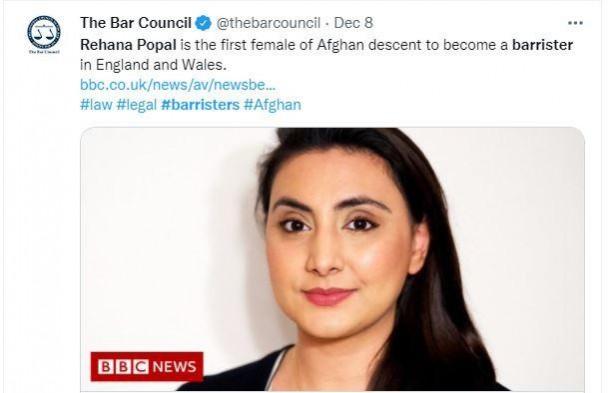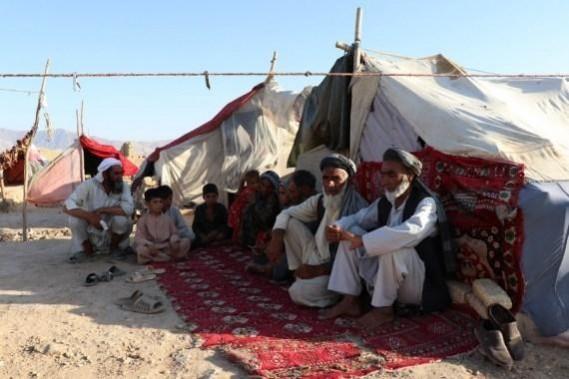At a time when most of the rich and powerful are either having only drawing room conversations about Afghan asylum seekers, or indulging in social media activism, there are those who are doing their bit in a way that counts.
The 31-year-old barrister is helping Afghan asylum seekers with their applications to come to the UK. "I came here as a child refugee and benefitting from that, I now sit before you," she says in an interview to BBC. Due to her dedication towards helping Afghans who worked for the British armed forces during the war in Afghanistan, she has been named in the BBC's Top 100 Women---Influential women playing their part to reinvent our society, our culture and our world.

Being a former child refugee herself, Popal says she truly understands the significance and life-altering impact of the work she does. "I realised first-hand the impact that it has. There are children who are dependent on this. There are women who are dependent upon this. Their potential life course would change fundamentally by that decision. I look at these applications. And I know what the consequences of it potentially are. I think that's part of the reason why, what fuels my passion I am going to do everything I can to make it right."
First female barrister of Afghan descent
Popal is also the first female of Afghan descent to hold the position of a barrister in England and Wales. And once upon a time, she herself was a child refugee, coming to the UK during the Afghanistan civil war. Around the time when Taliban was taking over the country for the first time. "It was with my mum and three older siblings," she recalls in the interview which talks about her work. Rehana's mother came to the UK as a single woman with four children.
"My mum tells me stories about how our home was hit with missiles. She has no pictures of her wedding, nothing. It all went up in flames and that was the reason we had to leave."
In an interview to The Bar Council UK, she talks about wanting to become a barrister ever since she came back home one day from school and saw people wearing wigs and fighting courtroom cases on TV. Although her work as a lawyer extends to helping several people for their human rights, but Rehana is currently representing about 100 Afghan families at the moment, many of which worked for the British armed forces.
Hardest part of her job
But the hardest part of her job is not the hardwork that goes behind the process of each application or the sleepless nights, it is having to turn away families that have desperation and hopeless future staring at them. She adds, "Speaking to one individual, he explains to me that if the visa doesn't happen soon, if things don't turn better very quickly, he's going to have no choice but to wed off his 13-year-old daughter, who in his words has only just grown up, started her periods, so she's now able to be wed. And that's the choices now facing families."
When saying 'no' is even tougher than hearing it

As heart-wrenching as it can get, she still has to refuse. "I think the hardest thing for me at the moment is having to turn individuals away. Because I am only one person and as much as I'm desperate and I want to help as many people as possible, it's just that I can't."
The worst part is further having to explain them the reason for rejecting application. "And having to explain that to them while they are in desperate circumstances, speaking over the phone with a poor internet connection is hard. And you can hear their heart break on the other side of the phone."
But she feels more than rewarded when her successful applicants make it to the UK. It's very heart-warming and it almost makes all the heartache and all the sleepless nights when you suddenly get a call," she says recalling a text she got just a week ago from a person who goes, "I'm in Birmingham. "I was like 'wow.' Those moments make it worthwhile, everything I go through."








